Edit from 2022: Consider checking the Forum user manual if you're not sure if something you're looking for might already be possible.
Hello, Forum!
This is Aaron and JP of the EA Forum team.
We spend a lot of time working on the Forum, and we’d like to hear your ideas for making it better. These can be new features or other kinds of requests.
Even if you don’t have suggestions of your own, consider upvoting ideas you like from the comments. That will have nonzero influence on the features we prioritize (though we also take many other factors into account).
If you’d rather make a suggestion privately, get in touch with us through this page.
Edit April 2022: This thread is still very live as you can see by the continual influx of suggestions. We have now synced our asana project with our public Github issues list, so you can see our recorded tasks there.[1] I'd still recommend suggesting features here so that other users can see and discuss them. — JP
- ^
Note: there's a delay between when we write tasks down and when they get triaged into a state that gets synced with Github.


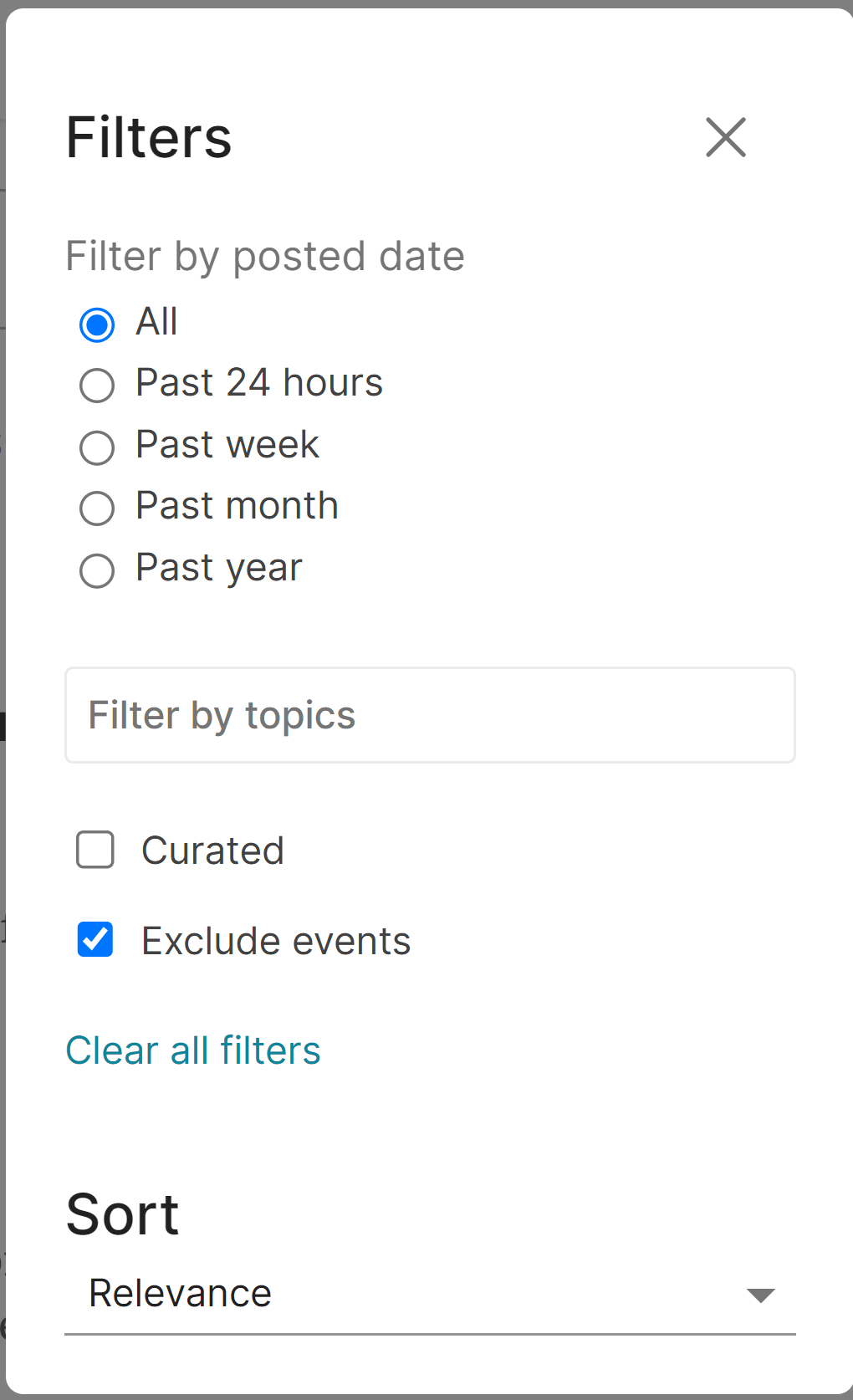
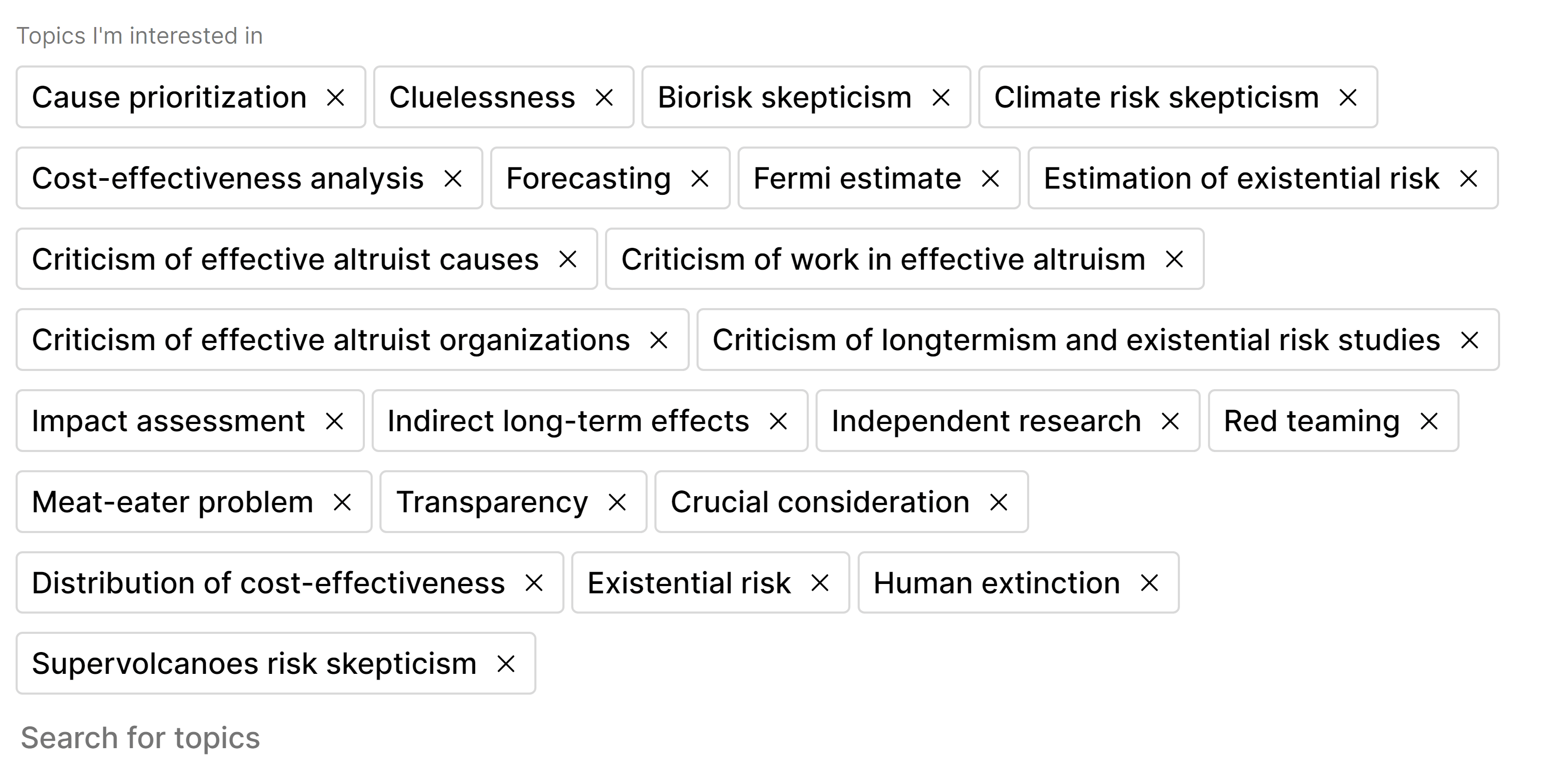


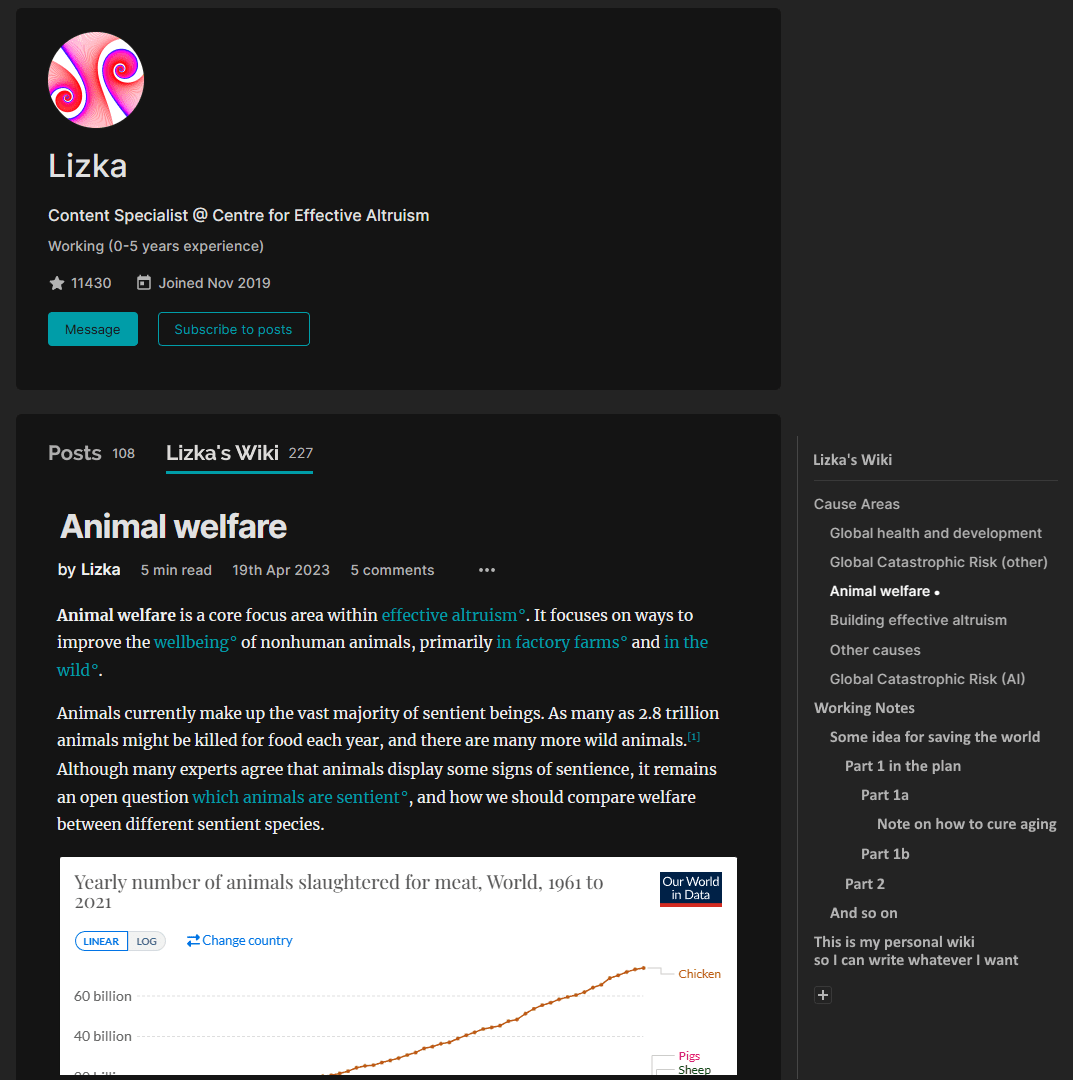
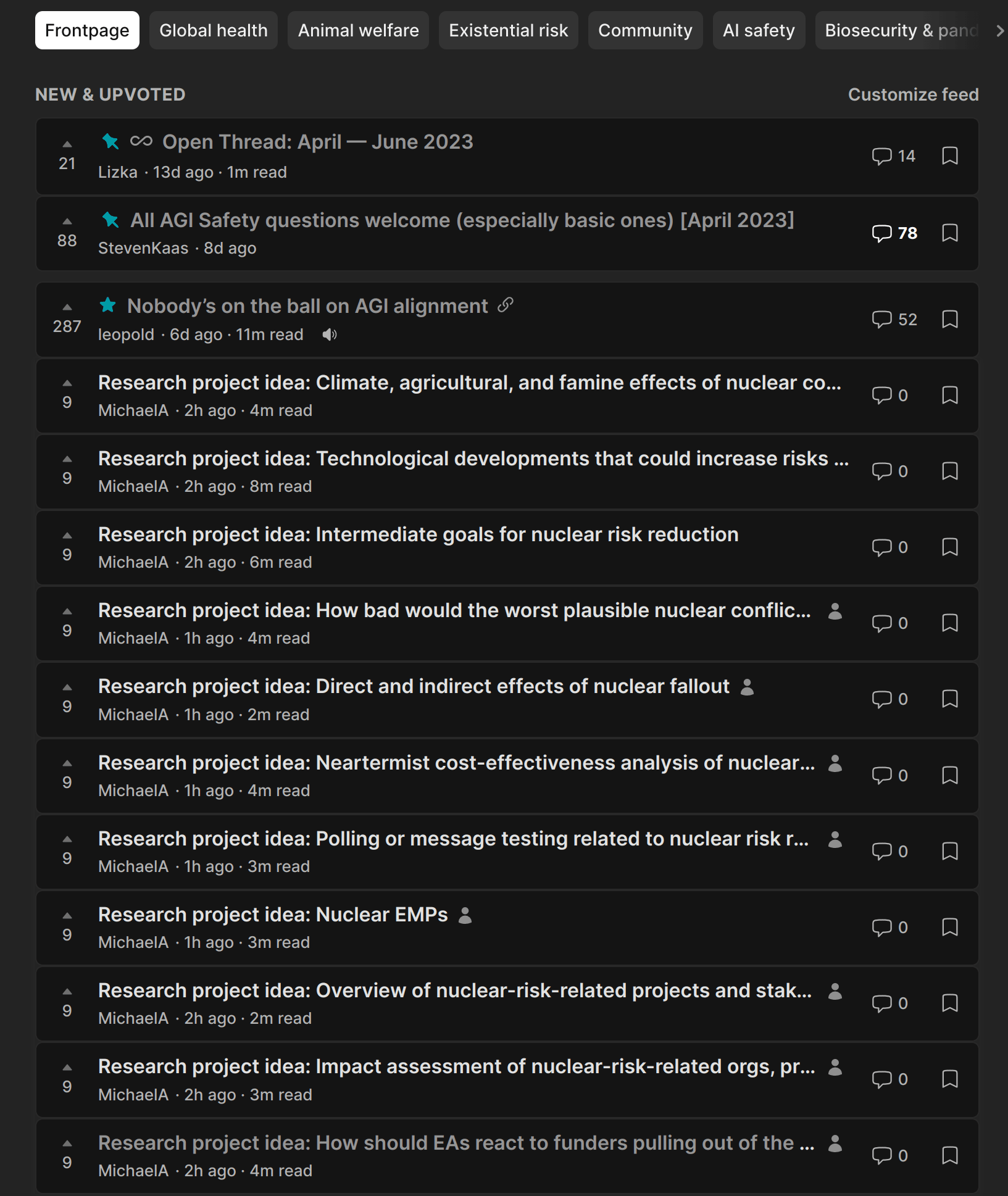
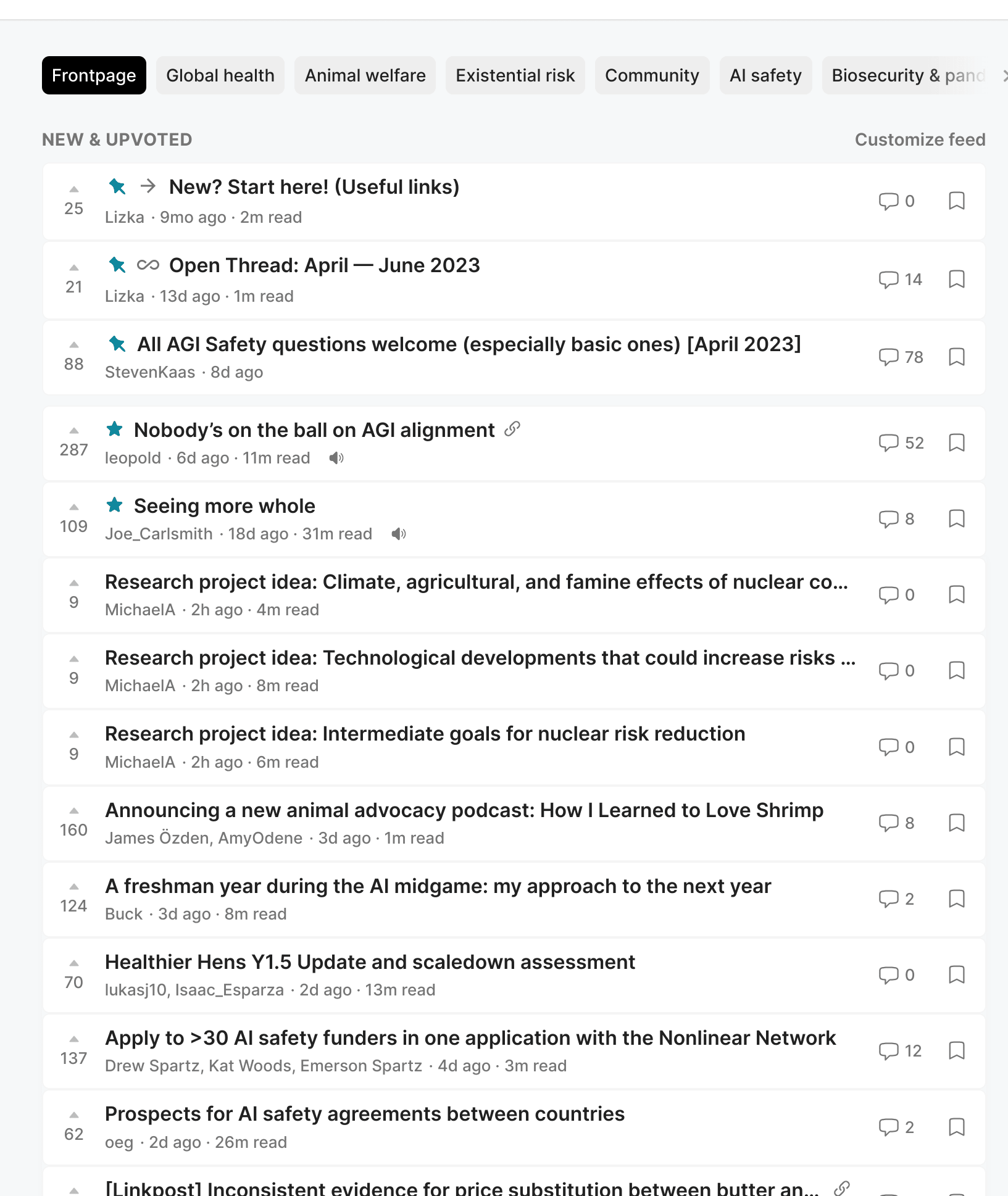



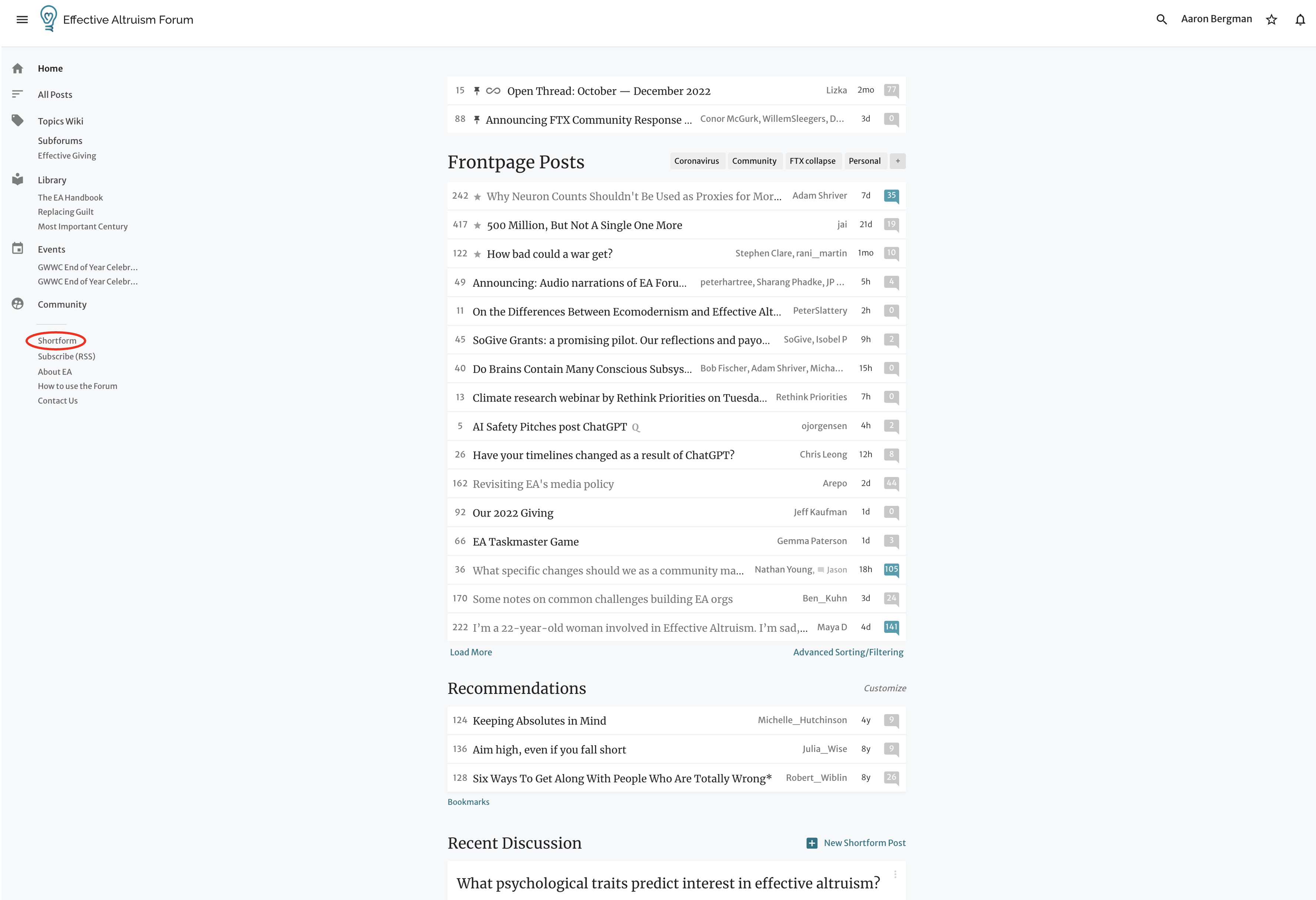


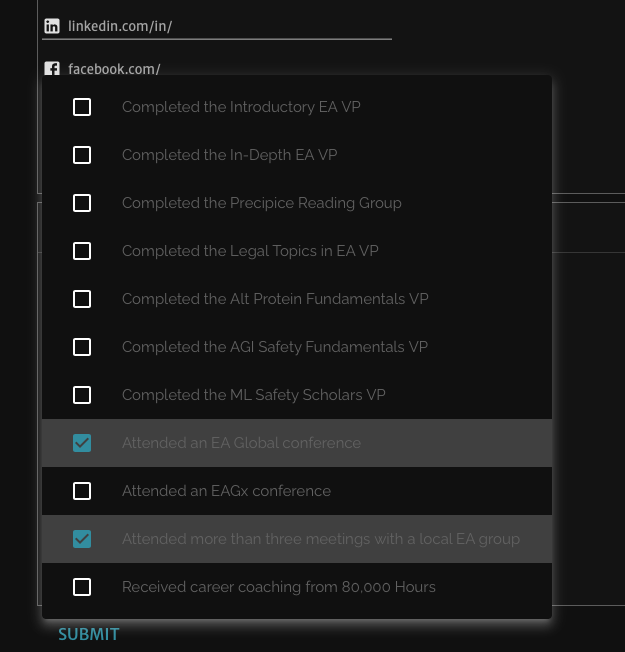
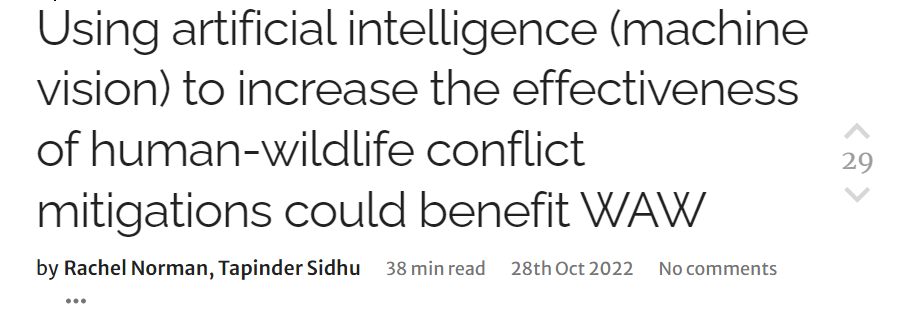
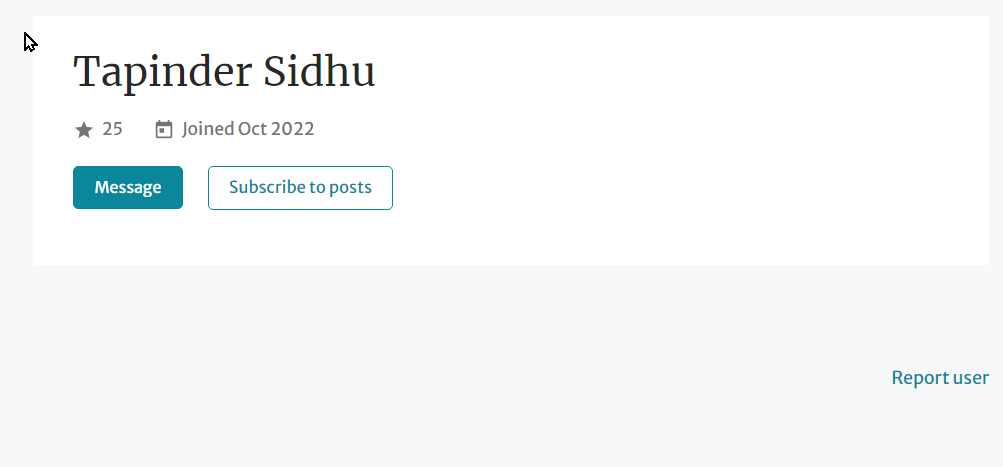
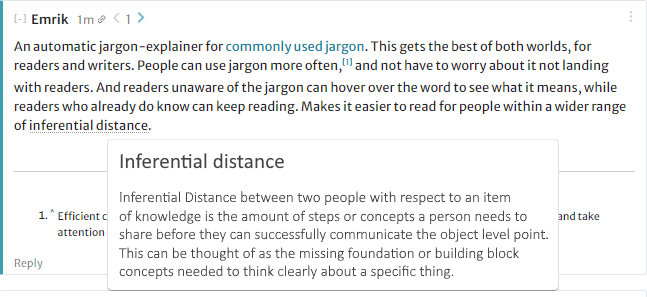
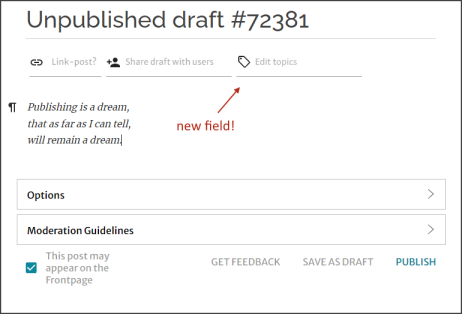

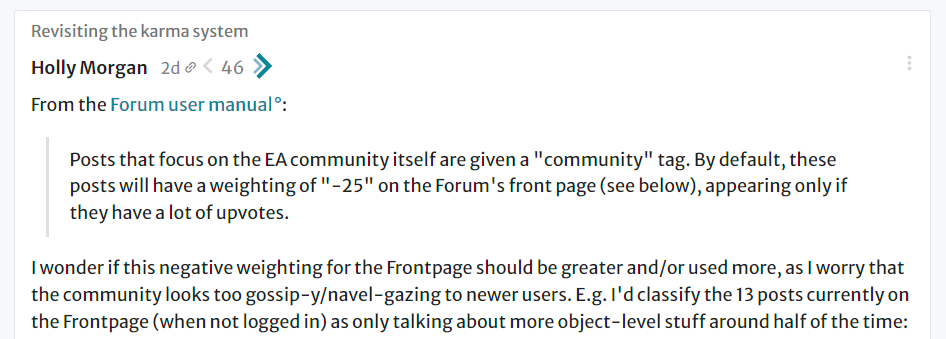

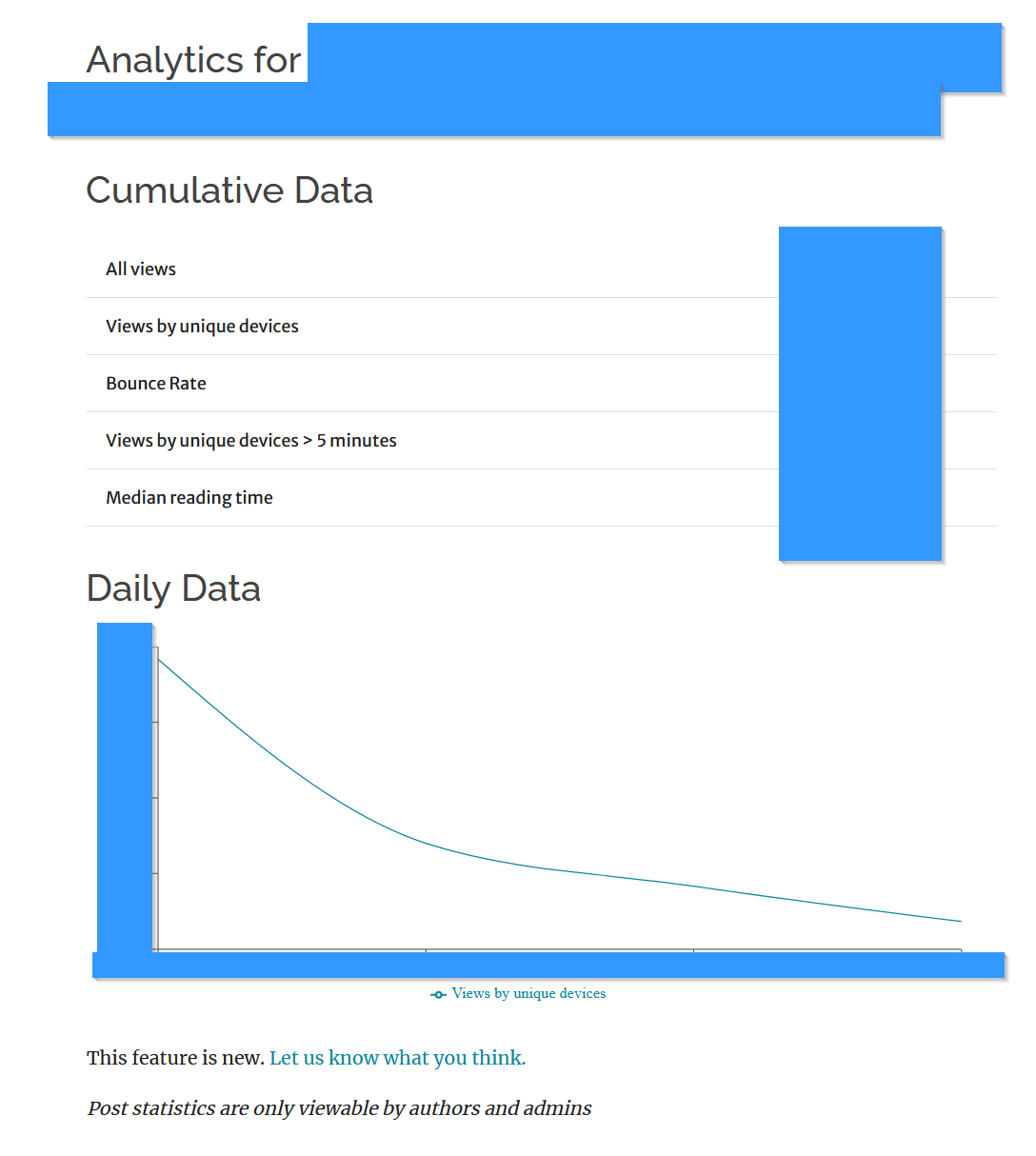
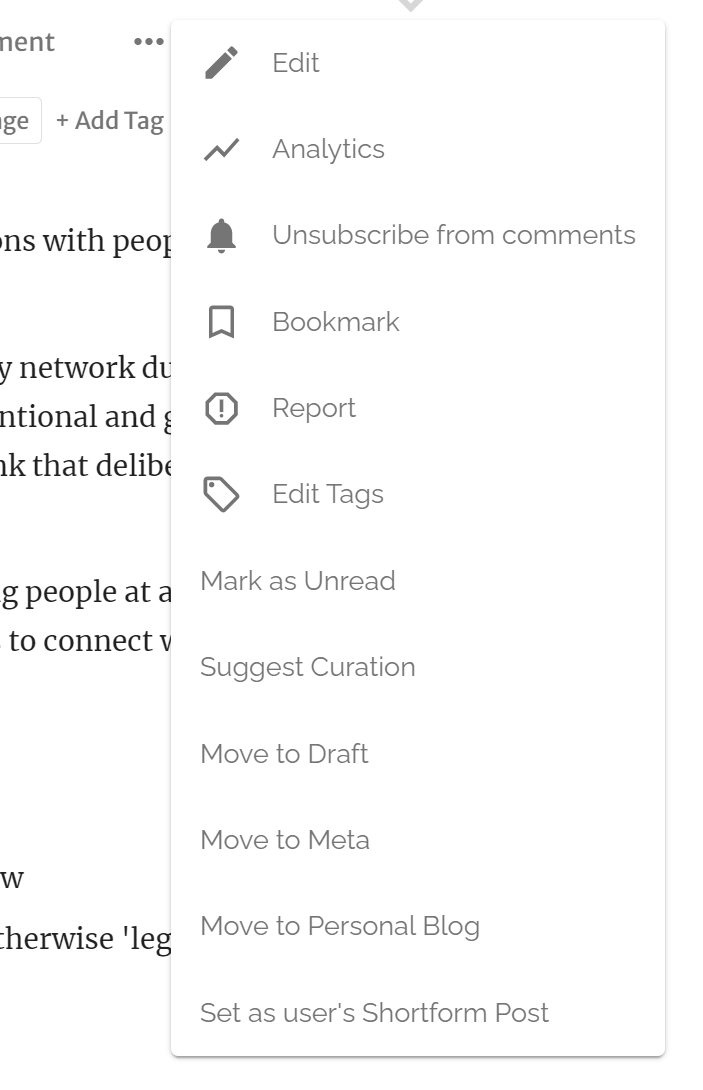
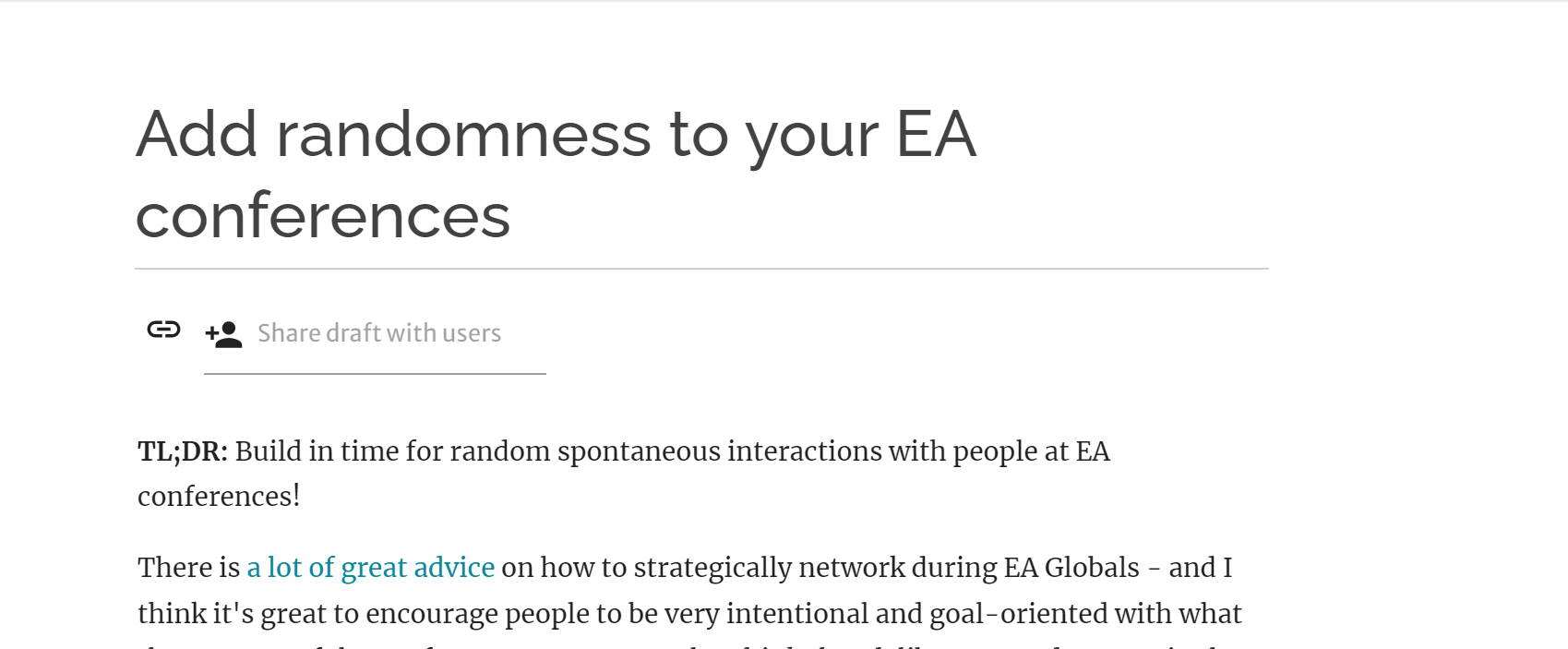

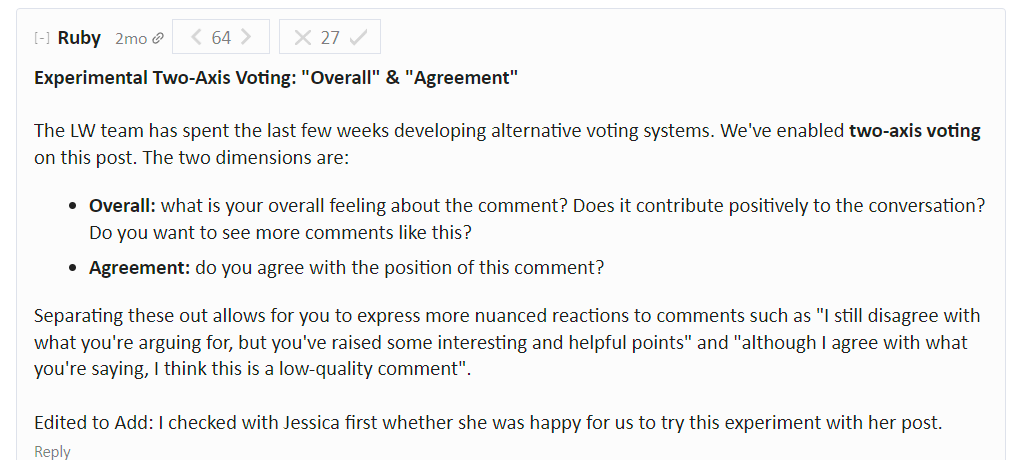
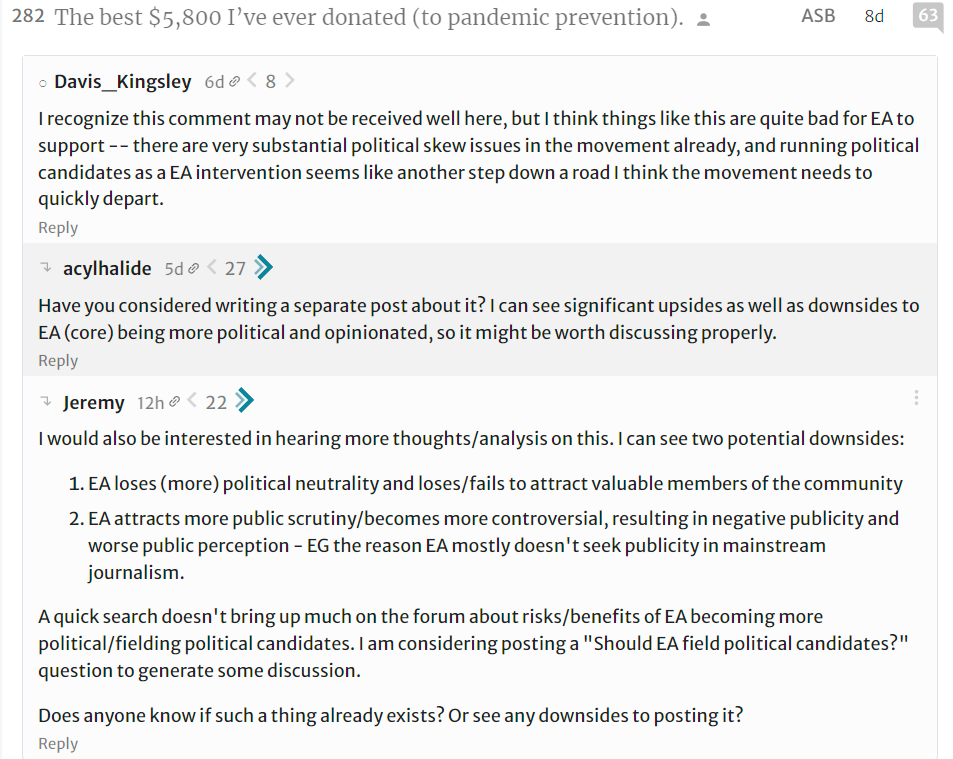
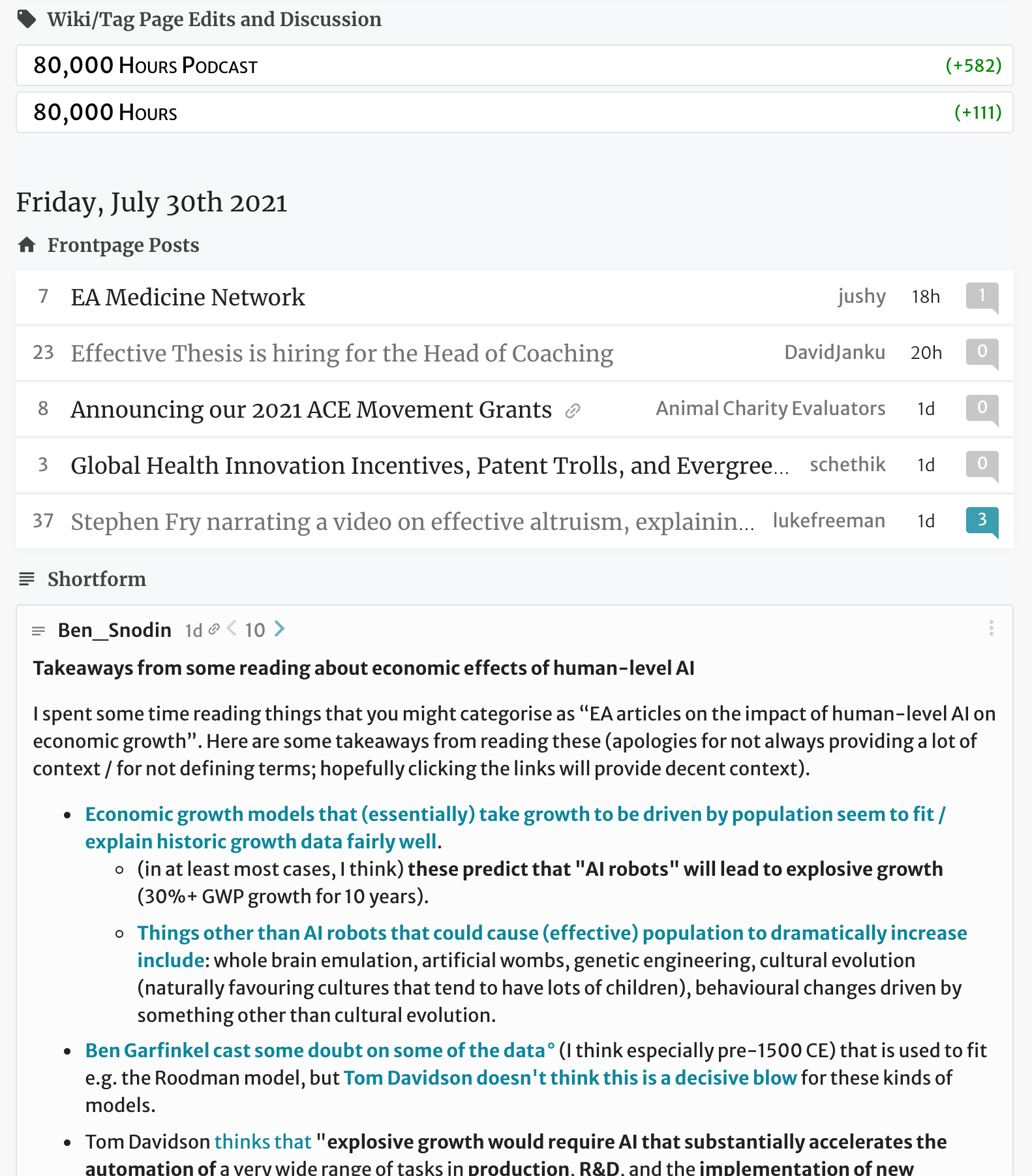
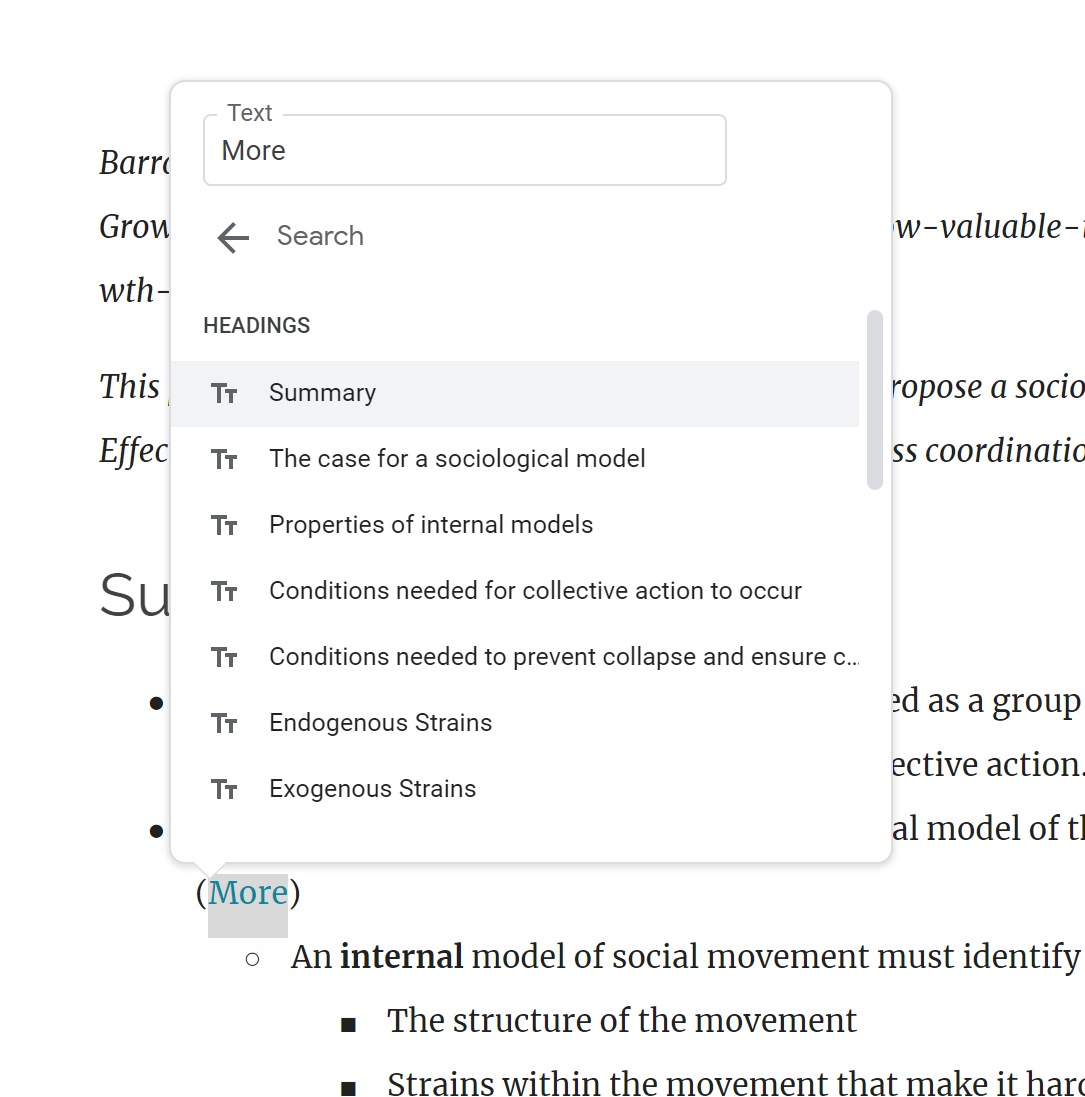

I was just about to suggest that. Reasoning explanations behind a vote could be also valuable.
Should max upvote be associated also with factors other than user karma, such as self-assessed professional expertise (according to broad criteria)? For example, someone who works in the EU Commission on Internet of Things could assess themselves as an ‘expert’ on a question that relates to valuable actions related to a new draft of the EU AI White Paper.
Voting can also seek to ameliorate biases by highlighting underrepresented perspectives. For instance, if there is a poll about priorities related to wild animal welfare, the vote of an AI safety researcher could be weighted more heavily if the majority of other votes are of wild animal welfare researchers. Voters’ organizational affiliations, professional and cause area expertise, and relevant demographics could be considered.
Unnecessary positive discrimination should be avoided. For instance, US college graduate male and female votes on an issue that does not relate to gender or gender norms should be weighted the same while the vote of Afghani women should be weighted more than that of Afghani men on any Afghanistan-related topic. This is based on the assumptions of equal opportunities for male and female students at US colleges but historically and currently unequal decisionmaking opportunities for women and men in Afghanistan.